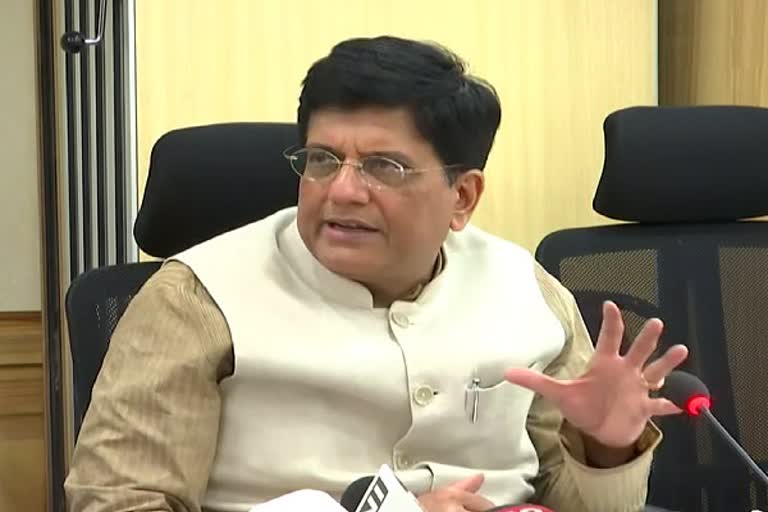New Delhi: The Central government has enhanced insurance cover for banks up to 90 per cent for working capital loans and moderation in premium incidence for the micro, small and medium enterprises (MSMEs) sector.
"The proposed cover will bring down the cost of credit due to capital relief, less provision requirement and liquidity due to quick settlement of claims," said Minister of Commerce and Industry Piyush Goyal.
"It will ensure timely and adequate working capital to the export sector," he said while addressing a press conference here.
The enhanced cover will ensure that foreign and rupee export credit interest rates will be below 4 per cent and 8 per cent respectively for exporters. The stimulus package will catalyse banks to enhance the volume of export credit lending particularly to the MSME sector with optimal pricing due to capital and risk optimisation, said Goyal.
The existing covers issued by the Export Credit Guarantee Corporation of India (ECGC) will continue for the existing customer banks and similar covers will also be made available to all other banks. All standard accounts covered under the ECGC as on the date of transition will be eligible for cover under the Export Credit Insurance Scheme (ECIS).
"The scope of the cover has been enlarged to cover not only the principal outstanding but also for the unpaid interest. The cover percentage has been enhanced to 90 per cent from the present average of 60 per cent for both principal and interest," said Goyal.
Read more:Digital platform launched to give single point access to exporters
A single cover document for ECIS will be issued covering both the pre-shipment and post-shipment advances, unlike the present two different documents being issued by ECGC.
The scheme envisages simplified procedure for settlement of the claim and also for provisional payment up to 50 per cent within 30 days on production of proof of end-use of the advances in default by the insured bank.
The ECIS support will be in force for five years. In conclusion, the standard ECGC covers will be available for banks with its regular features.
For accounts with limits below Rs 80 crore, the premium rates will be moderated to 0.6 per annum. For those exceeding Rs 80 crore, it will be 0.72 per annum for the same enhanced cover, said Goyal.
Banks will pay a premium to ECGC on monthly basis on the Principal and Interest as the cover is offered for both outstandings. Under the scheme, an inspection of bank documents and records by ECGC officials will be mandatory for losses exceeding Rs 10 crore as against the present Rs 1 crore.
The banks shall continue to adhere to guidelines of the Reserve Bank of India relating to export finance backed by enhanced due diligence on the borrower.
The ECGC is a government-owned company established in 1957 to promote exports by providing credit insurance services. It provides Export Credit Insurance to Banks (ECIB) to protect the banks from losses on account of export credit at the pre- and post-shipment stage given to exporters due to the risks of insolvency and protracted default of the exporter borrower.



